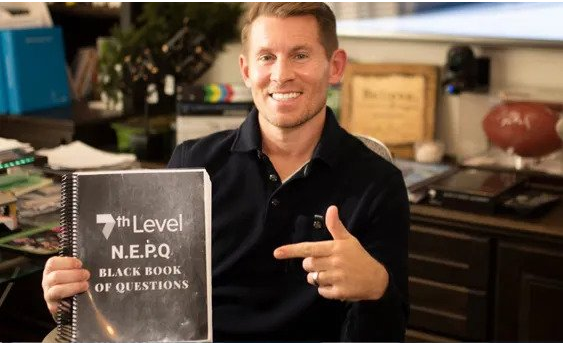Jeremy Miner Teaches How Selling Less Leads To More Sales With His NEPQ Framework

As companies and entrepreneurs increasingly seek to introduce more persuasive principles of psychology and even sociology into their marketing and sales efforts, the landscape of communicating has changed drastically. Here’s how Jeremy Miner, The Chairman of 7th Level, a Global Sales Training Company, believes that less “selling” leads to more sales.
Starting from zero about 20 years ago, during college, my first job was selling home security systems door to door. The company hired everybody because it was a straight commission job with the training you for about a week, handing you a script and map, then dropping you off and basically saying “Hey, go make some sales.”
At that point, like many newbies to sell, Jeremy thought selling was just going to be easy, but quickly found out otherwise and started experimenting with different techniques.
The Birth of NEPQ
With the failures, he pivoted and created his own methodology aka the Neuro Emotional Persuasion Questions (NEPQ) that pivots on a key principle of behavioral science starting from what he learned from college.
Human beings are the most persuasive when they allow others to persuade them.
This means asking the right questions, in the right sequence, with the right delivery – causing your prospect to be drawn towards you, to pull you in and pursue you – as opposed to being repelled by, rejecting, and trying to get rid of you.
The biggest differentiator between NEPQ and most other sales methods is that they tend to work in direct opposition to the laws of human behavior and psychology, whereas, in contrast, NEPQ originates from the question, ‘What do studies in human behavior psychology actually tell us about different forms of communication, and the degree to which each either is – or isn’t – persuasive?’
It turns out science tells us there are three forms of communication, the first being the least persuasive, which is “telling” people things – or “pushing” them into doing something.
The second form, which is a little more persuasive is discussion, as embraced by proponents of consultative selling. Consultative selling, developed in the late 1980’s centers around asking logic-based questions to find out the needs of the client. The downfall with this approach is that logical questions invite logical answers but people’s buying decisions aren’t based on logic but on emotion.
The third and most persuasive mode of communication happens when we allow others to persuade themselves. Also known as dialogue, this happens when we ask what I call Neuro-emotional Persuasion Questions (NEPQ) – skilled questions that, when positioned within a scientifically designed sequence and structure, trigger the prospect to answer in such a way that they seamlessly sell themselves.
Jeremy Miner shares that not only did he use NEPQ himself to sell and earn multiple seven-figure commissions year-on-year in four separate industries as a W-2 sales rep during his seventeen-year sales career but since starting 7th Level but went on to train clients across hundreds of industries who continue to report exponential sales gains using the NEPQ methodology.
One of the primary reasons NEPQ is applicable across the board is because the questions and tonality that are taught to’ sales teams are designed to work with human behavior – rather than against it. Regardless of industry, every product or service out there exists to solve a problem or an emotional need.
Using NEPQ allows you to not only help your prospect uncover their real problems or emotional needs but more importantly what’s behind the problem, and what’s driving the need, giving clients across any industry the foundation for radical results.
NEPQ is not only a sales tool
Jeremy shares that everyone needs to understand we are ALL in sales now, it does not matter what you do! Even if you’re not out there getting paid a commission, you would most certainly be seeking in some way to persuade, influence, and convince others whether that is your partner or child, etc. In fact, to be human is to be hard-wired with a desire to “move others.”
To break it down – If you’re a business owner seeking to have your employees follow your vision for the company, then you’re trying to persuade, influence and move others.
If you’re an employee wanting to convince your boss to give you a pay rise, then you’re in the business of trying to convince, persuade and move others.
If you’re an attorney endeavoring to convince the jury that your client is innocent, you are most definitely transacting in persuasion, influence, and moving others.
If you’re a teacher setting out to convince your class to apply themselves to an assignment, you are undertaking to persuade, influence, and move others.
The number one skill a human being needs in order to get ahead in life is – learning how to persuade and influence others.




